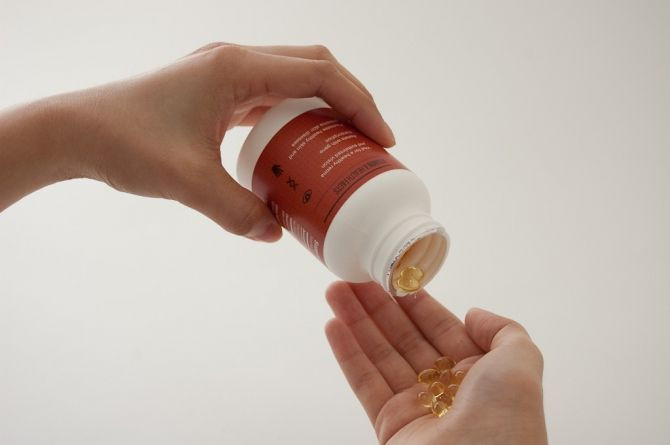Vitamin D May Prolong Life

Increasing vitamin D intake could increase the chances of living for the elderly, especially for those who are really frail, a new study says.
The study found that elderly adults who had low levels of vitamin D in their diet had a double risk of dying earlier than adults who had high levels of vitamin D. People who were frail had a threefold higher risk of dying early.
“What this really means is that it is important to assess vitamin D levels in older adults, and especially among people who are frail,” said Dr. Ellen Smit of Oregon State University, lead author of the study. “Older adults need to be screened for vitamin D,” she said.
For the study, researchers analyzed medical records of about 4,300 adults who were over the age of 60. They found that people who had higher amounts of vitamin D in their diet were more likely to live longer than those who had lower levels of vitamin D.
“As you age, there is an increased risk of melanoma, but older adults should try and get more activity in the sunshine. Our study suggests that there is an opportunity for intervention with those who are in the pre-frail group, but could live longer, more independent lives if they get proper nutrition and exercise," she said.
Frailty is ascribed when the person walks too slowly, has muscle weakness, loses a significant amount of weight unintentionally, is exhausted more often and has low levels of physical activity, according to a statement by the Oregon State University.
The design of the study prevented researchers from finding out the exact relation between frailty and vitamin D; whether frail people become vitamin D deficient or whether vitamin D deficiency causes frailty, is not clear.
“If you have both, it may not really matter which came first because you are worse off and at greater risk of dying than other older people who are frail and who don’t have low vitamin D. This is an important finding because we already know there is a biological basis for this. Vitamin D impacts muscle function and bones, so it makes sense that it plays a big role in frailty," Smit said.
Earlier research has shown that a high intake of vitamin D cuts the risk of fractures in older adults. Medical Daily has previously reported that taking vitamin D and calcium prolongs life and that a deficiency of vitamin D in one’s diet might lead to depression. Also, vitamin D keeps mood swings away and prevents weight gain in women who have hit menopause.
About 70 percent of people in the US do not have sufficient levels of vitamin D in their diet, according to the researchers.
“We want the older population to be able to live as independent for as long as possible, and those who are frail have a number of health problems as they age. A balanced diet including good sources of vitamin D like milk and fish, and being physically active outdoors, will go a long way in helping older adults to stay independent and healthy for longer," Smit said.
The study was published in the European Journal of Clinical Nutrition.
Published by Medicaldaily.com



























